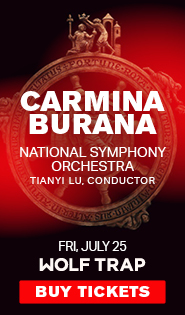Top Ten Performances of 2024
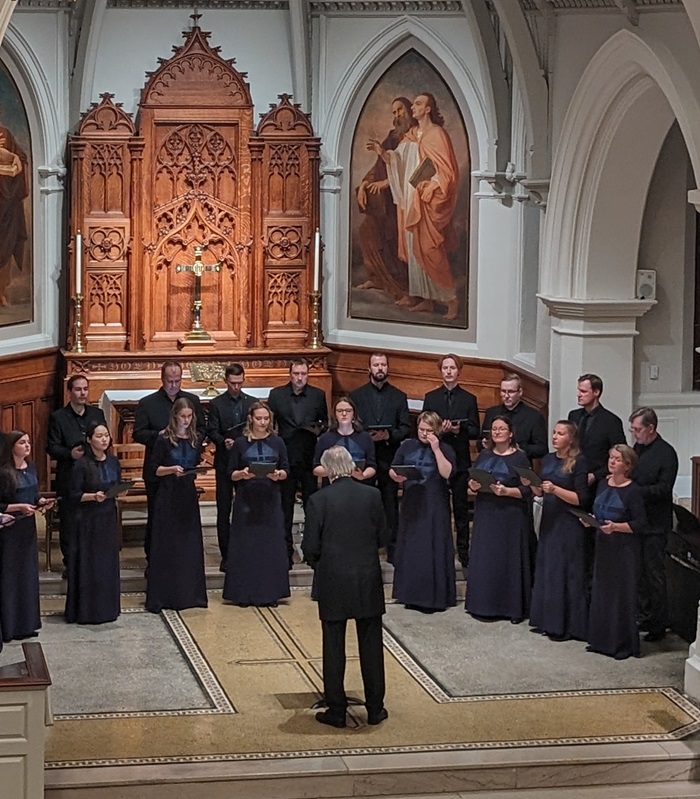
Photo: WCR
1. Music of Arvo Pärt. Tõnu Kaljuste/Estonian Philharmonic Chamber Choir.
The first local visit by this esteemed Baltic choir since 2008 featured not only excellent music, pairing their countryman Arvo Pärt with Palestrina, but some of the most astounding choral singing heard in many years. No choir in the world has had such a long history with Pärt’s music, and it showed, especially under the veteran leadership of their founder, Tõnu Kaljuste. Another feather in the cap of the small concert series offered by St. John’s Episcopal Church in Georgetown.
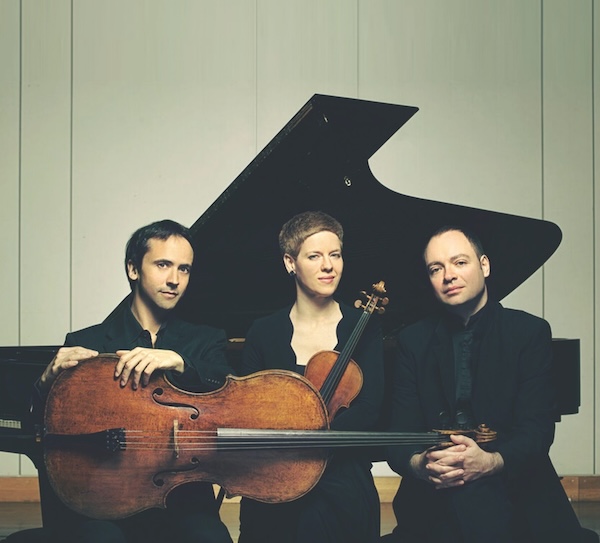
2. Piano Trios by Schumann, Carter, and Brahms. Melnikov-Faust-Queyras Trio.
The Library of Congress’s Coolidge Auditorium is often a temple for the area’s devotees of chamber music. If the ideal chamber group is composed of members who not only play at the same virtuosic level but do so collegially, this triad of superstars has fit the bill since coming together as a piano trio a decade ago. They excelled not only in standard works by Schumann and Brahms, but in Elliott Carter’s swan song, Epigrams, a set of twelve miniatures composed when he was 103 years old.
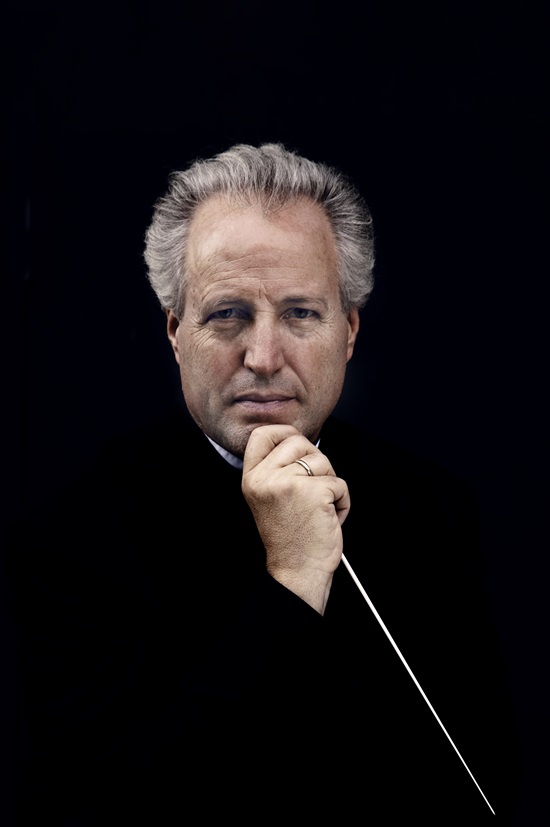
Photo: Felix Broede
3. Bruckner: Symphony No. 9. Manfred Honeck/National Symphony Orchestra.
The Austrian conductor, long-time music director of the Pittsburgh Symphony Orchestra, delivered a magisterial interpretation of Bruckner’s Ninth in his latest appearance with the NSO. As in his authoritative recording of the work, this performance delighted as an intense expression of Honeck’s Catholic faith, no less sincerely lived than Bruckner’s. It was a powerful opening to the Bruckner Jahr, marking the composer’s 200th birthday, bookending the year with Marek Janowski’s equally brilliant Bruckner Fourth last month.
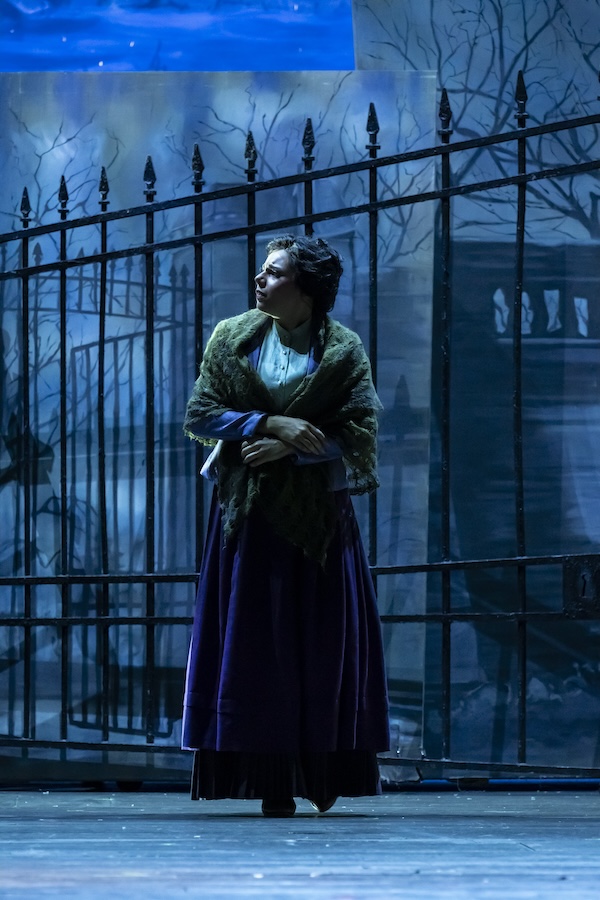
Photo: Scott Suchman
4. Puccini: La Bohème at Wolf Trap Opera.
Operas presented in the outdoor Filene Center at Wolf Trap can be undone by clunky amplification, weather conditions, and the sometimes untried young artists who make up the casts. Considerable surprise, then, that this summer’s single offering, the unadventurous La Bohème, proved the year’s best opera. In a painterly production created by John Caird, the Mimi of soprano Amanda Batista stood head and shoulders above her colleagues in one of the area’s strongest debuts in recent memory.
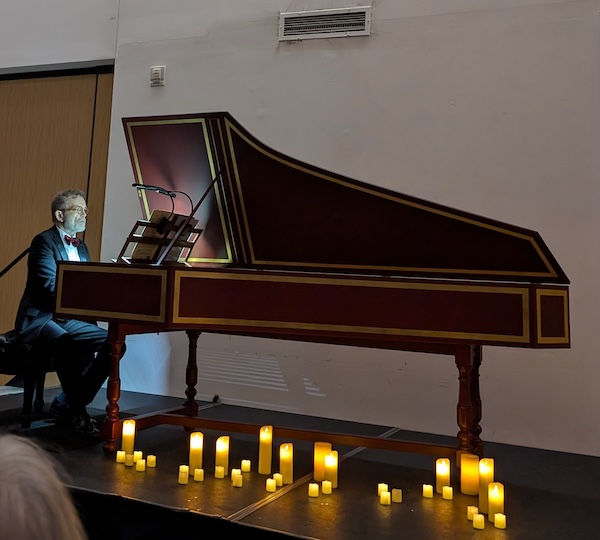
Photo: WCR
5. Music of Couperin, Forqueray, and Royer. Christophe Rousset.
Capriccio Baroque’s first harpsichord festival concluded this fall with a masterful recital by Christophe Rousset at the French Embassy. Music by three of France’s great baroque composers, all recorded eminently by Rousset, revealed the sparkling qualities of the 1991 two-manual harpsichord created by celebrated local makers Thomas and Barbara Wolf. A compelling encore, Royer’s “Marche des Scythes,” roiled with violence.
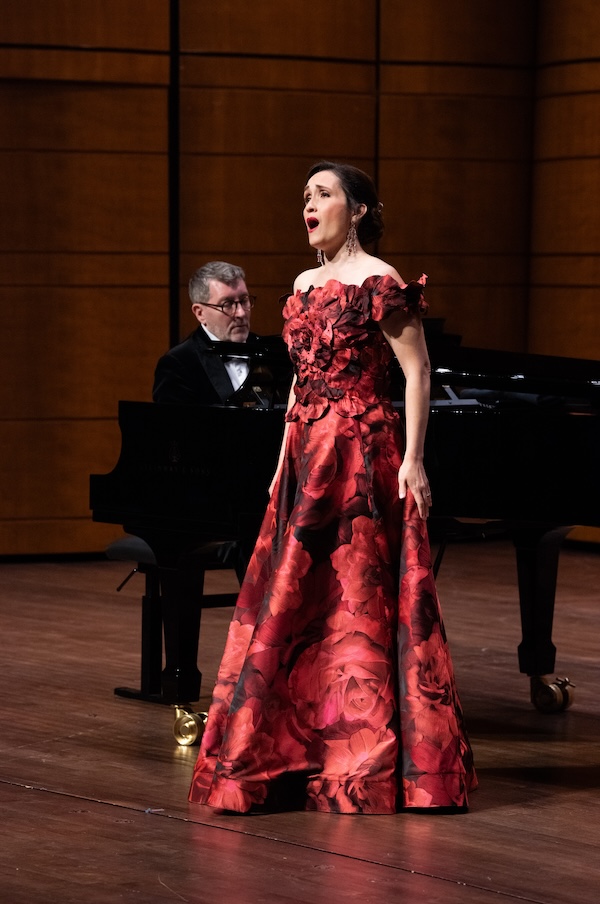
Photo: Courtney Ruckman/Vocal Arts
6. Songs by Gordon, Bizet, Debussy, others. Erin Morley and Gerald Martin Moore.
Among the May flowers that bloomed in Washington was this exemplary song recital by soprano Erin Morley, presented by Vocal Arts DC. After the premiere of Ricky Ian Gordon’s new song cycle, Huit Chansons de Fleurs, came more daring vocal exploits, in showpieces by Saint-Saëns and Debussy, as well as sober works by Rachmaninoff and Zemlinsky. This effervescent program by the “Utah Nightingale” concluded with some extraordinary coloratura feats, dessert pieces by Arthur Sullivan, among others.
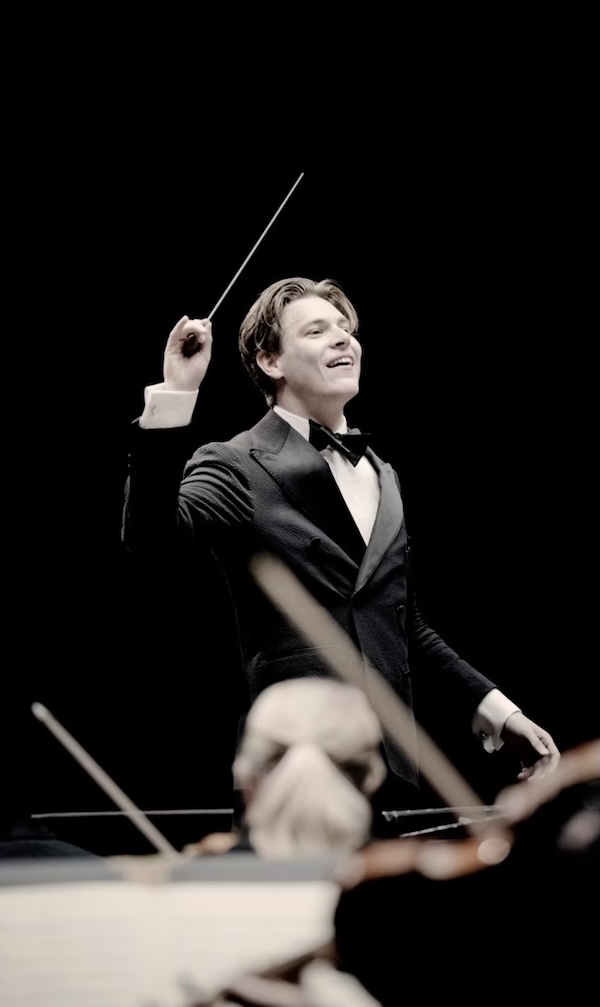
Photo: Marco Borggreve
7. Music by Reid, Prokofiev, and Rachmaninoff. Klaus Mäkelä/Royal Concertgebouw Orchestra.
The Finnish Wunderkind made a stylish local debut with the RCO, one of the two esteemed orchestras he will helm as music director starting in 2027, presented by Washington Performing Arts. The storied Dutch ensemble sounded lush in its marvelous string section, matched by quirkily individual woodwinds and imperious brass. Mäkelä showed fine taste in new music in choosing Ellen Reid’s Body Cosmic, and superb accompaniment in Prokofiev’s Violin Concerto No. 2 with Lisa Batiashvili as soloist.
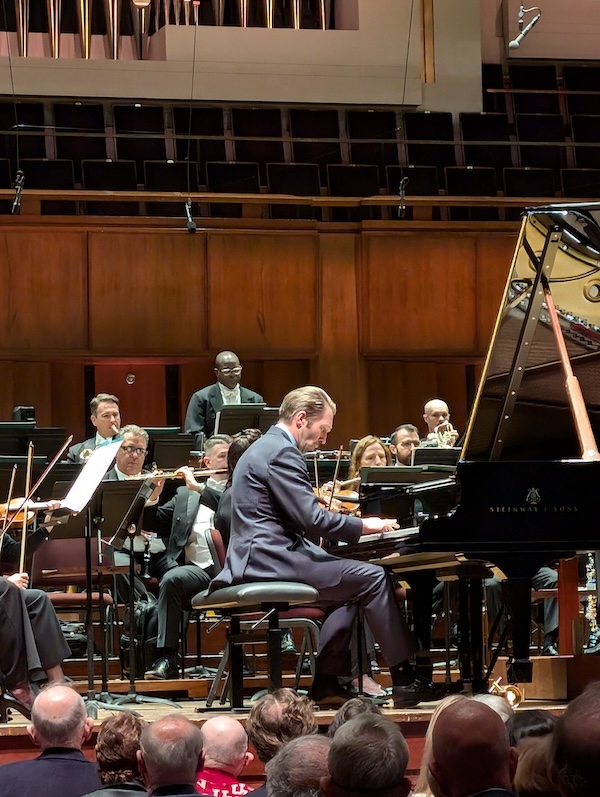
Photo: WCR
8. Music of Strauss and Beethoven. Gianandrea Noseda/National Symphony Orchestra.
Gianandrea Noseda led a remarkable series of programs with the NSO in October, with three concerts marking the 75th anniversary of the death of Richard Strauss. Recognizing the composer’s contributions to song, tone poem, and opera, Noseda outdid himself in the central program featuring Ein Heldenleben. Even more remarkable was a truly imperial rendition of Beethoven’s evergreen Piano Concerto No. 5, with Norwegian pianist Leif Ove Andsnes at the keyboard.
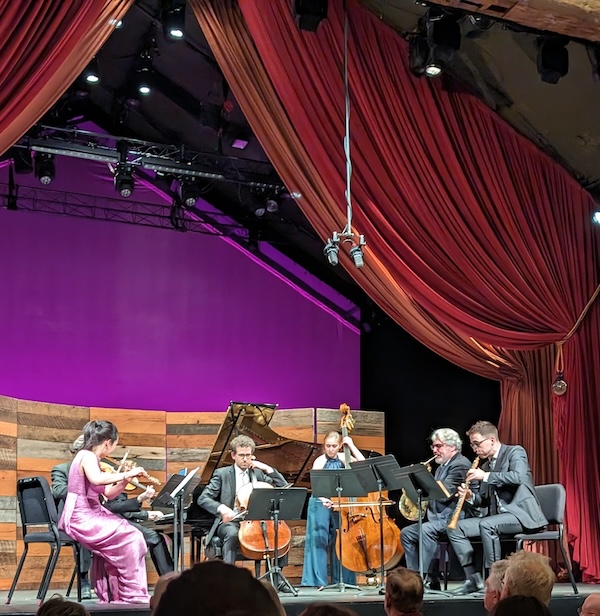
Photo: WCR
9. Music of Beethoven, Hummel, and others. Chamber Music Society of Lincoln Center.
Wolf Trap presented a gourmet feast of musical rarities, performed with panache by a cast of superstars from Chamber Music Society of Lincoln Center. Accomplished pianist Juho Pohjonen anchored the concert, which featured works for horn (Beethoven), oboe (Britten), flute and violin (Duruflé), and Rossini’s Duetto in D Major for cello and double bass. This cabinet of curiosities concluded with a superlative rendition of Johann Nepomuk Hummel’s rarely heard Septet in D Minor, for all of those instruments combined.
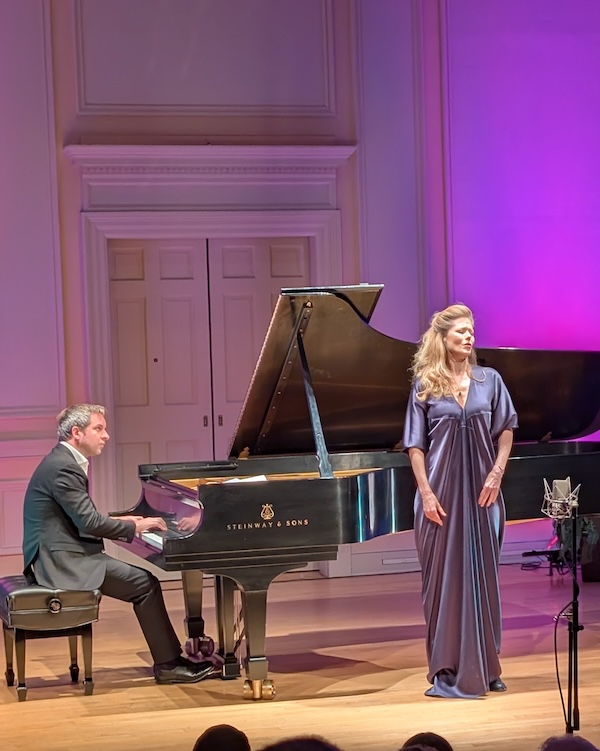
Photo: WCR
10. Music of Messiaen, Scriabin, and Zorn. Barbara Hannigan and Bertrand Chamayou.
Leave it to soprano Barbara Hannigan to come in under the wire with a Top Ten-level concert just last week at the Library of Congress. The multi-faceted singer with a reputation as the high priestess of contemporary music may not wield the most beautiful or powerful voice, yet her single-minded commitment to bringing out every element in two challenging song cycles, by Olivier Messiaen and John Zorn, was simply astounding to watch. Free seats remained, which in the venue’s new ticketing system, could have gone to anyone waiting in the line for unclaimed tickets. Make it your New Year’s resolution to hear more concerts in this excellent free concert series.
Best Choral Performance
Bernard Labadie’s striking debut with the National Symphony Orchestra this year included, one imagines, the first-ever symphony by Henri-Joseph Rigel in the ensemble’s history. Even more impressive was his consolatory reading of Gabriel Fauré’s Requiem Mass. The intimate tone of the performance rested on Labadie’s use of the 1900 version of the score, in a new critical edition, and an internally auditioned choir within a choir drawn from the Washington Chorus by careful screening for purity of sound, minimal vibrato, and blend.
Best Orchestral Programming
Jun Märkl gets an honorable mention for his inventive program with the Baltimore Symphony Orchestra this year. Gabriela Lena Frank’s Concertino Cusqueño featured the principal string players on an imagined guided tour of Frank’s mother’s native Peru for Benjamin Britten. Principal clarinetist YaoGuang Zhai followed up a brilliant rendition of Mozart’s Clarinet Concerto with a Rachmaninoffian encore, Prayer by Amanda Harberg. The evening closed with two immense works of metaphysical import, Messiaen’s Le Tombeau resplendissant and Strauss’s Death and Transfiguration, with especially lush string divisi in the former.
Most Atmospheric Performance
Chiarina Chamber Players gave an entrancing performance of George Crumb’s Vox Balaenae last April. Cellist Carrie Bean Stute, flutist Sarah Frisof, and pianist Steven Beck all produced a startling range of shamanistic sounds, in the last evening light coming through the stained glass windows of St. Mark’s Episcopal Church on Capitol Hill. All three players wore black masks, as the composer instructed, which heightened the score’s many spell-binding effects, like the flutist singing through her flute, the cellist whistling and playing crotales, plus strumming, plucking, and buzzing effects inside the piano. In fact, it was a fine year for Crumb, with the Pacifica Quartet also giving a mesmerizing December performance of the composer’s Black Angels at the Library of Congress.
Best New Work
It is a rare thing to be thoroughly convinced by a new piece, but it happened listening to Time’s River, the new oboe concerto by Russian composer Alexander Raskatov. Gianandrea Noseda led the local premiere of the work in October with Alexei Ogrintchouk, principal oboist of the Royal Concertgebouw Orchestra, as soloist with the National Symphony Orchestra. Inspired by themes of “the suffering of the earth,” taken from a poem by Gavrila Derzhavin, the piece was premiered by the RCO in 2022.
Sugar Plum Award
Chamber Music Maryland, formerly Candlelight Concert Society, brought the Tallis Scholars to Ellicott City’s First Lutheran Church for an immaculately sung program that earned this year’s coveted prize for the year’s best Christmas concert. The esteemed choir’s American tour featured chants by Hildegard of Bingen, Renaissance motets, and sacred music by Arvo Pärt, making for a Christmas both old and new.
Lux aeterna luceat eis
This year the classical music world mourned the passing of contralto Ewa Podleś, conductors Seiji Ozawa and Andrew Davis, pianist Maurizio Pollini, composers Péter Eötvös and Wolfgang Rihm, cellist Antônio Meneses, tenor Steve Davislim, music critic Richard Dyer, conductor and composer Leif Segerstam, musical satirist Peter Schickele (also known as P.D.Q. Bach), and arranger Quincy Jones. Noteworthy losses in the rest of the arts world include sculptor Richard Serra, painters Faith Ringgold and Frank Stella, video artist Bill Viola, poet Nikki Giovanni, and writers Alice Munro and Edna O’Brien.

